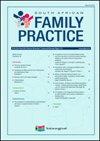Forensic evidence preservation following an incident of rape: The role of the victim
IF 1.2
Q2 MEDICINE, GENERAL & INTERNAL
引用次数: 0
Abstract
Background: Rape has a high prevalence in South Africa. The collection of credible and valid forensic evidence is a key legal factor that impacts case trial outcomes. Victim behaviour around the time of the rape can impact the collection and the integrity of forensic evidence, and can have a direct effect on case progression and conviction. Despite the importance of victim behaviour, few studies have been done on the role of victims in preserving forensic evidence. This article discusses how common personal hygiene practices undertaken by rape victims after being raped can impact the quality and validity of forensic evidence. This investigation was done with the aim of elucidating the role of victims in preserving forensic evidence post rape.Methods: This was a descriptive, retrospective clinical audit of all rape victims managed at Robert Mangaliso Sobukwe Hospital forensic unit in South Africa from 01 January 2020 to 31 March 2022.Results: A total of 192 rape cases over the study period were included in this review. The median age of rape victims was 20 years (minimum 2 years; maximum 76 years). The majority (n = 178; 92.7%) of the victims were female. About 44.8% (n = 86) of the victims reported that they had urinated post-rape and prior to forensic examination, 20.8% (n = 40) had changed their clothing, 8.3% (n = 16) had showered, 6.8% (n = 13) had bathed, 4.2% (n = 8) had douched, and only 1.0% (n = 2) had defecated. Only 44 (22.9%) of the victims reported to have ingested alcohol or spiked drinks before the rape.Conclusion: These findings suggest that some rape victims engaged in personal hygiene practices that could militate against forensic evidence preservation. This finding, therefore, indicates the need for public awareness about ways to preserve evidence to the greatest extent possible after an incident of rape.Contribution: We provide simple guidelines for victims on the preservation of forensic evidence following rape and before detailed forensic medical examination and evidence collection.强奸事件后的法医证据保存:受害者的作用
背景:强奸案在南非的发生率很高。收集可信和有效的法医证据是影响案件审判结果的关键法律因素。受害者在强奸案发生前后的行为会影响法医证据的收集和完整性,并对案件的进展和定罪产生直接影响。尽管受害者的行为很重要,但有关受害者在保存法医证据方面的作用的研究却很少。本文讨论了强奸受害者在被强奸后的常见个人卫生习惯会如何影响法医证据的质量和有效性。这项调查旨在阐明受害者在强奸后保存法医证据中的作用:这是对南非罗伯特-曼加利索-索布奎医院(Robert Mangaliso Sobukwe Hospital)法医部门在 2020 年 1 月 1 日至 2022 年 3 月 31 日期间处理的所有强奸受害者进行的一次描述性、回顾性临床审计:在研究期间,共有 192 例强奸案被纳入本次审查。强奸受害者的年龄中位数为 20 岁(最小 2 岁,最大 76 岁)。大多数受害者(n = 178;92.7%)为女性。约44.8%(n = 86)的受害者表示在强奸后和法医检查前小便过,20.8%(n = 40)的受害者换过衣服,8.3%(n = 16)的受害者洗过澡,6.8%(n = 13)的受害者洗过澡,4.2%(n = 8)的受害者冲洗过身体,只有1.0%(n = 2)的受害者排便过。只有 44 名受害者(22.9%)称在被强奸前喝过酒或加了料的饮料:这些发现表明,一些强奸受害者的个人卫生习惯可能不利于法医证据的保存。因此,这一发现表明,有必要提高公众对强奸事件发生后如何最大限度地保存证据的认识:贡献:我们为受害者提供了在强奸后、详细法医检查和证据收集前保存法医证据的简单指南。
本文章由计算机程序翻译,如有差异,请以英文原文为准。
求助全文
约1分钟内获得全文
求助全文
来源期刊

South African Family Practice
MEDICINE, GENERAL & INTERNAL-
CiteScore
1.50
自引率
20.00%
发文量
79
审稿时长
25 weeks
期刊介绍:
South African Family Practice (SAFP) is a peer-reviewed scientific journal, which strives to provide primary care physicians and researchers with a broad range of scholarly work in the disciplines of Family Medicine, Primary Health Care, Rural Medicine, District Health and other related fields. SAFP publishes original research, clinical reviews, and pertinent commentary that advance the knowledge base of these disciplines. The content of SAFP is designed to reflect and support further development of the broad basis of these disciplines through original research and critical review of evidence in important clinical areas; as well as to provide practitioners with continuing professional development material.
 求助内容:
求助内容: 应助结果提醒方式:
应助结果提醒方式:


